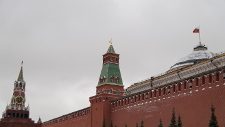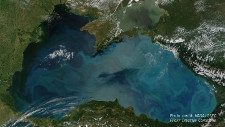Silk Road Studies Program

The Silk Road Studies Program focuses mainly on the western part of Eurasia, including Central Asia, the Caucasus, Turkey, Eastern Europe and the Baltic Sea region. It incorporates the Turkey Center. Together with the Central Asia-Caucasus Institute, the Silk Road Studies Program forms a Joint Transatlantic Research and Policy Center. It is the first Center of its kind in Europe and North America and is today firmly established as a leading center for research and policy worldwide, serving a large and diverse community of analysts, scholars, policy-watchers, business leaders and journalists.
From 2005-2017, the Joint Center was affiliated with the Paul H. Nitze School of Advanced International Studies of Johns Hopkins University.
The Joint Center has offices in Washington and Stockholm, and is affiliated with the American Foreign Policy Council and the Institute for Security and Development Policy.
Publications
The Central Asia-Caucasus Institute & Silk Road Studies Program publishes the biweekly Central Asia-Caucasus Analyst and the occasional Silk Road Papers series as well as monographs. Its Turkey Initiative publishes the biweekly Turkey Analyst.
Ranging from 50 to 150 pages in length, the Silk Road Papers are an avenue for the rapid publication of research in a concise and accessible yet rigorous manner. An average of six to ten Papers are produced yearly. The Papers are published electronically and in print, and are freely available online. The papers are published by the Central Asia- Caucasus Institute & Silk Road Studies Program.
Editorial correspondence should be addressed to the editor of the paper series, Dr. Svante Cornell.
ISDP Forums
The Silk Road Studies Program regularly invites scholars and distinguished experts to hold ISDP Forums concerning relevant and timely topics. In addition to these forums, the program also arranges conference and seminars.
Related News
Related Publications
-
Not Drawing a Parallel. Ukraine and Taiwan: An Indian Perspective
Russia’s war against Ukraine has not only had economic, diplomatic, and geopolitical repercussions, but also exaggerated the fear of accelerated conflicts in the Indo-Pacific, a region with several unresolved conflicts […]
-
The Limitations of India and Russia’s Transactional Relationship
Since Russia’s unprovoked invasion of Ukraine in February 2022, it might seem as though ties between India and Russia have strengthened. While much of the West isolated Russia, India-Russia energy […]
-
ISDP Annual Report 2023
ISDP’s Annual Report for the year 2023. We look back on 2023, a year in which tensions and conflicts captured the strategic space in ISDP’s focus areas, making headlines around […]
-
Experts’ Scenarios on Russia’s Future
What does Russia’s future hold? Of course, we don’t know. For a century determinists of various persuasions claimed to be able to predict future developments. They believed that very few […]
-
A New Spring for Caspian Transit and Trade
Major recent shifts, starting with the Taliban victory in Afghanistan and Russia’s war in Ukraine have led to a resurgence of the Trans-Caspian transportation corridor. This corridor, envisioned in the […]




